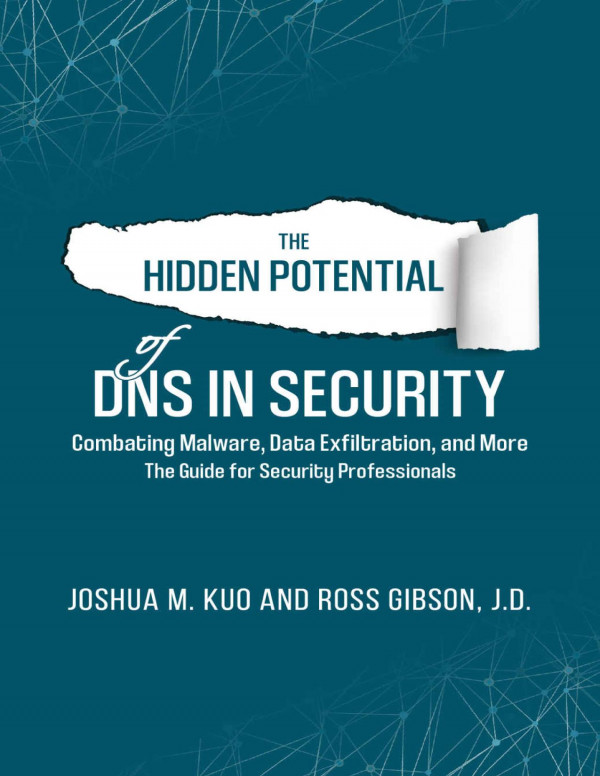

Most ebook files are in PDF format, so you can easily read them using various software such as Foxit Reader or directly on the Google Chrome browser.
Some ebook files are released by publishers in other formats such as .awz, .mobi, .epub, .fb2, etc. You may need to install specific software to read these formats on mobile/PC, such as Calibre.
Please read the tutorial at this link: https://ebookbell.com/faq
We offer FREE conversion to the popular formats you request; however, this may take some time. Therefore, right after payment, please email us, and we will try to provide the service as quickly as possible.
For some exceptional file formats or broken links (if any), please refrain from opening any disputes. Instead, email us first, and we will try to assist within a maximum of 6 hours.
EbookBell Team

4.0
66 reviewsHowever, despite its vulnerabilities, DNS can unlock a hidden world of security capabilities that can help protect today’s highly distributed and cloud-integrated networks. The Hidden Potential of DNS in Security reveals how attackers exploit DNS and how cybersecurity professionals can proactively use DNS to turn the tables and mitigate those threats.
Knowing how to leverage the protective capabilities of DNS can give you an unprecedented head start in stopping today’s advanced cyberthreats. This book gives you that knowledge.
Written specifically for security practitioners, and including real-world case studies, this book offers a thorough yet easy-to-digest understanding of today’s most urgent and potentially damaging DNS-based cyberthreats, how to mitigate them, and how to leverage your DNS infrastructure to further your security mission. In it, you will discover:
Why DNS is inherently vulnerable and why knowledge of DNS is now crucial for security teams
How malware uses DNS to avoid detection and communicate with command-and-control (C2) infrastructure
How threat actors leverage DNS in executing a broad array of attacks involving look-alike domains, domain generation algorithms, DNS tunneling, data exfiltration, and cache poisoning
What DNSSEC is (and is not) and how it works
How recently emerging encrypted DNS standards can impact security controls, along with the security advantages they can provide
How DNS can be leveraged in Zero Trust architectures
How you can improve your security posture using the DNS infrastructure you already have